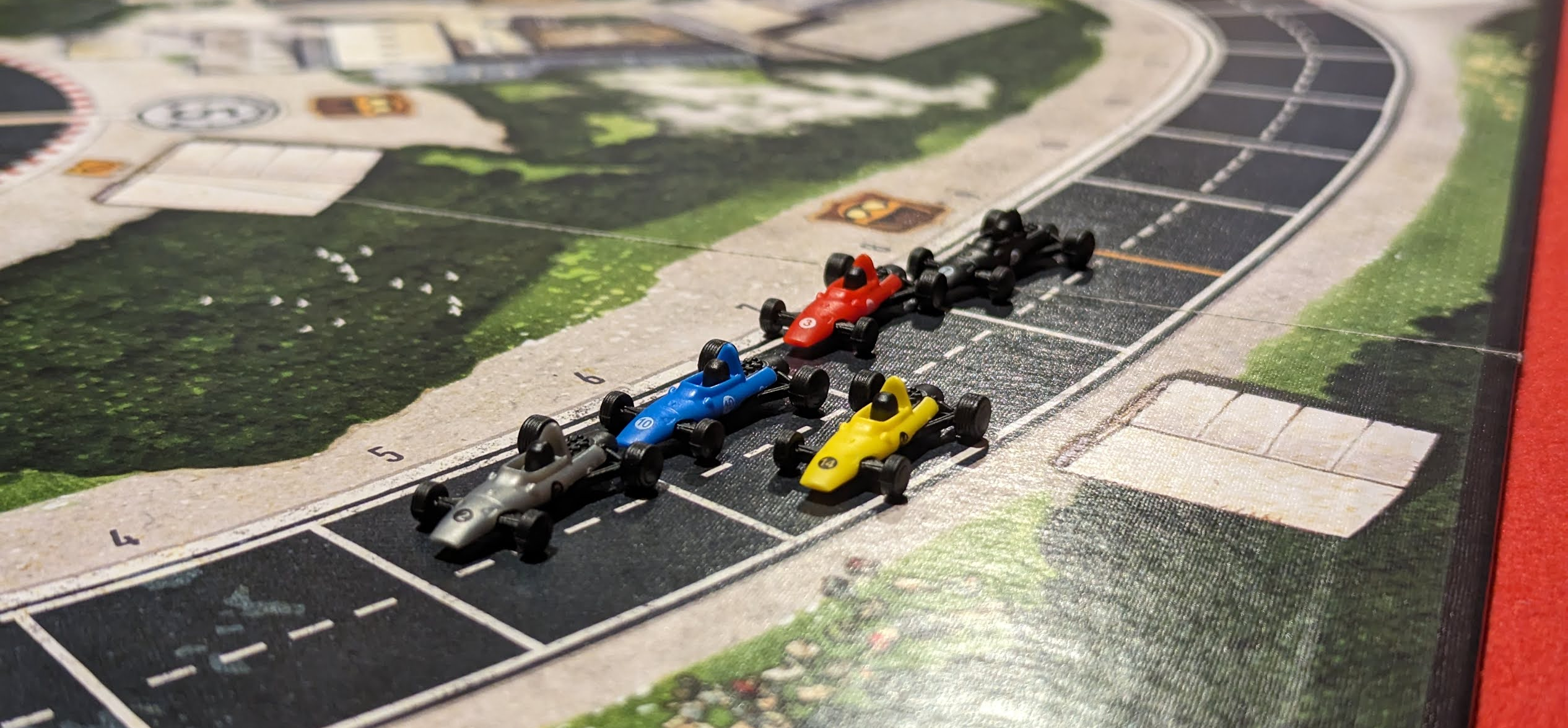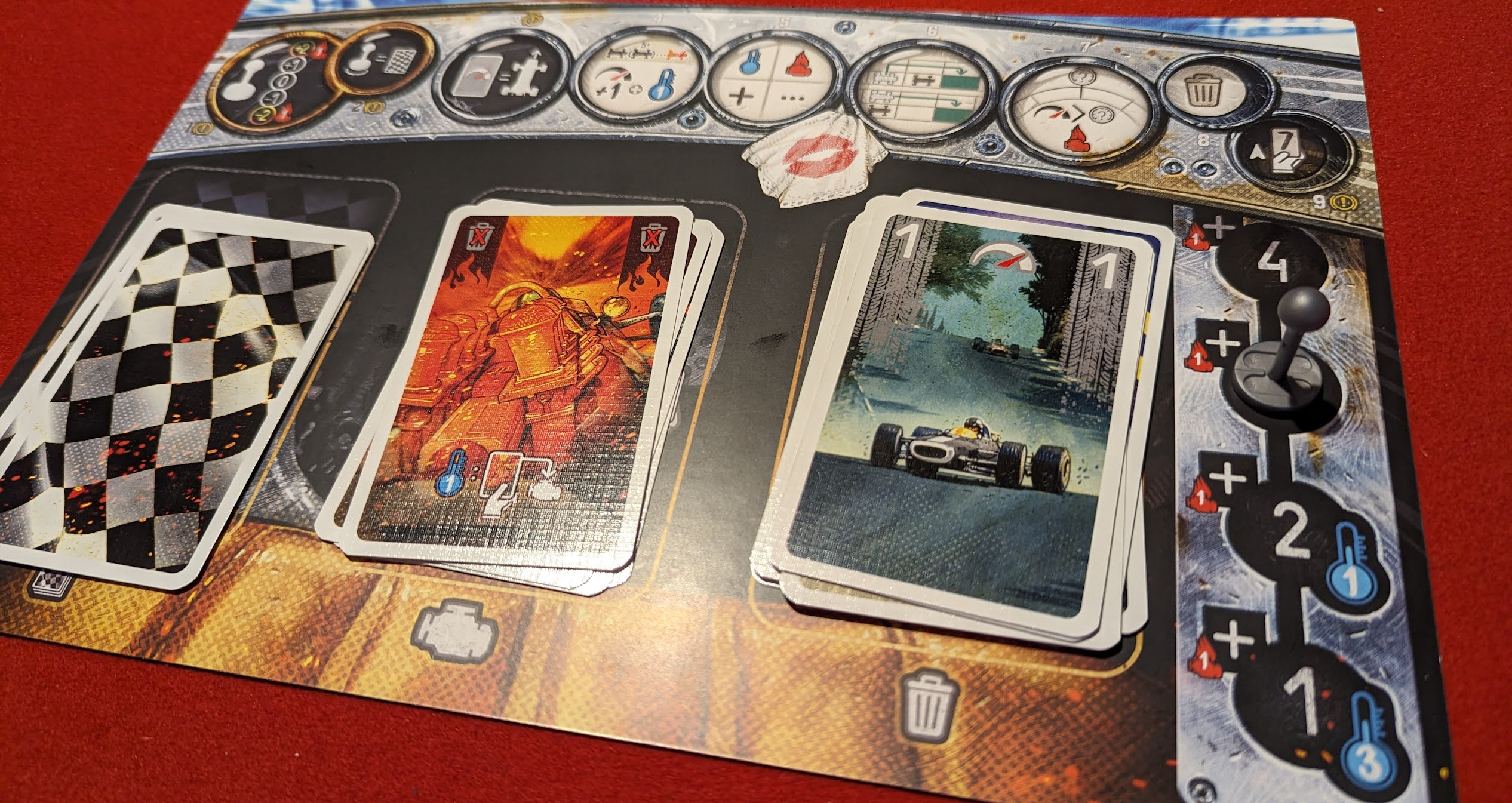I've played a lot of board games over the last decade, and you know what the thing about most board games is? Most of them are fine. Unlike video games and their wildly more complex sets of intersectional needs and places where things can go wrong, board games are much easier to design.
I should know, I've made one, and while it's work, it's also slightly easier to slap some systems on a table and make them fun than it is to combine programming, visuals and audio into something that people feel through a controller and on a screen. As a gamer, I can hear someone is making a 4X video game and it can fill me with equal amounts of excitement and dread because there are so many places a video game can fuck it up. As a board gamer, if someone says they're making an engine-building game featuring deck-management and it's set in 16th-century Italy, in my head I'm 80% of the way to playing it before I've even played it.
That's not to discredit the field of board game design! While it's easy to make a workable board game, it's very hard to make a good one, and just because it takes less work to make most board games doesn't mean it doesn't still take a lot of work. My point here is that, thanks to the challenges involved and the scale of the task, I'm frequently left slack-jawed at the brilliance of the design of some of my favourite video games; my favourite board games, however, usually elicit more of just a general "yeah, this all works, awesome, thanks".
That is, until I was playing Heat last week, when I found myself 15 minutes in and mumbling out loud "holy shit holy SHIT" as the rules of the game unfurled in front of me, revealed themselves in all their glory then slotted into place with millimeter-perfect precision, like the world's most exquisite woodworking joint.
Heat was first released in 2022, but since the pandemic did one hell of a number on my board game crew--a longer, sadder story for another day--we only just got around to playing it this month. It's a racing game; not usually the sexiest, most popular or well-designed genre of board games, but then few racing games have ever done it quite like this before.
The one racing game that a lot of people thought was really good is 2016's Flamme Rouge (which I reviewed at The Old Site), and hey whaddya know, it was designed by Asger Harding Granerud, the same guy behind Heat. Only now instead of riding bikes around an old-timey Tour De France, we're driving cars around an old-timey Formula 1 circuit.
If you've played Flamme Rouge you'll recognise Heat's combination of miniature racing and card management instantly. If you haven't, here's how it works: players are all racing along a track with little plastic cars. You draw cards into a hand, those cards have big movement numbers on them, and those numbers dictate how many spaces you can move your car.
That was pretty much how Flamme Rouge played, but here, driving big explosive cars instead of just pushing a bike up a hill, things are a bit more complex. The game's name comes from the heat your engine generates, which is something players have to juggle throughout the game; pushing your car will move you faster and get you out front, but the more you push, the more heat you'll generate, and if your car gets too hot, you'll spin out.

Two other things you are constantly worrying about are your gears, because whatever gear you're in dictates how many cards you can play, and then corners, because if you're going too fast--from playing too many cards because you're in a high gear--when you try to go around corners you'll generate too much heat and, again, spin out (which doesn't knock you out of a race, it just knocks you out of a turn and will usually send you to the back of the pack).
The way your cards, gear and corners all work together to have you constantly juggling your speed--aaarrggh I'm not going fast enough, now I'm going too fast--is wonderful, and is as taxing on the first turn as it is on the last. I can't stress enough how cool this is. Heat is a board game where it can take around an hour to finish a track if you've got the maximum number of players, and at no time is anyone ever waiting, or bored, or stuck in a phase of the game that just isn't as existing as another. Just like the real thing, you're going full throttle when the lights go green, and you're going full throttle when the chequered flag comes out.
One thing that's not quite like the real deal is the game's rubber-banding system. Thanks to the fact racers are drawing and playing cards, and that people spinning out and falling into last place is going to happen a lot, Heat has decided to play a little loose with the consequences of bad luck and bad decisions. If you end a turn behind or next to another player--which happens a lot when you're coming last--you can slipstream right past them, and the players at the very rear of the pack also get a few bonuses every turn to help them catch up to everyone else.
It's slightly annoying to me, someone who gets slightly annoyed that the best driver doesn't always win at Mario Kart, but I acknowledge I am a racing game psycho who often forgets the point of these games is to have fun, not to win. For normal people it's a great system because it's yet another reason the game remains tense and interesting throughout, because nobody is ever going to be in last place for long.
I just don't have anything bad to say about this game. It set out to make a board game about racing old F1 cars, and that's exactly what this feels like to play. Heat is a taxing, exhilarating struggle between caution and speed, which somehow takes a bone-rattling sports experience and distils it perfectly onto a tabletop. As someone who has played the game, I love it. As someone who has designed a racing board game using many similar systems that's nowhere near as good, though, I am in awe.



